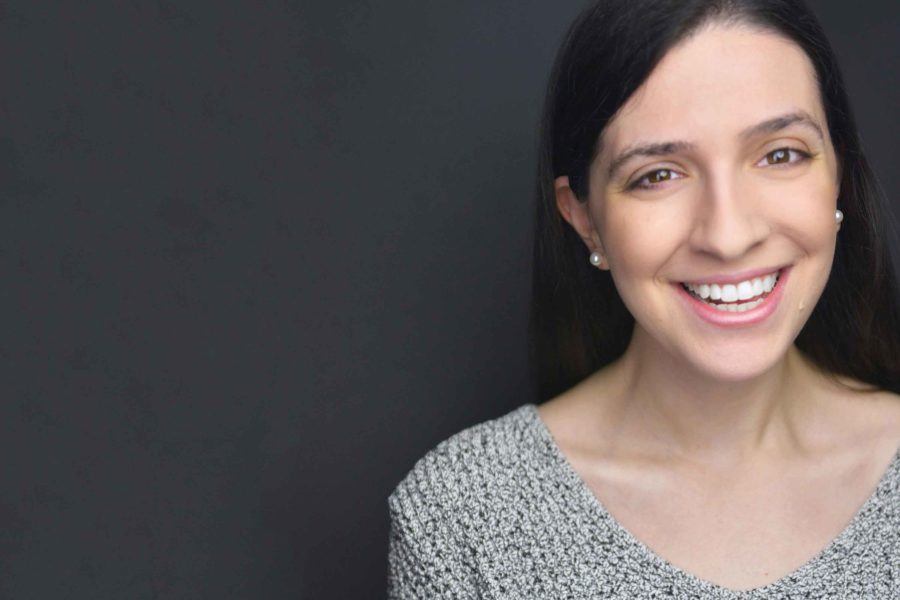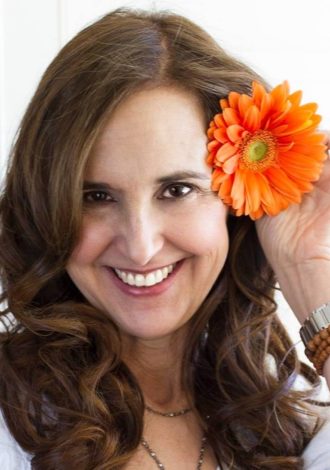There’s a lot about Sammi Cannold’s career that is unusual.
She’s a female director. She’s never been an actor, choreographer, writer or stage manager, the path that most theater professionals travel before becoming a director.
She started directing at the age of 12, and first got paid for it at age 13.
She was recently named to Forbes magazine’s 2019 30 Under 30 list.
Like I said, she’s unusual.
At 24, Cannold is the youngest female director to work at the American Repertory Theater, currently taking the helm of “Endlings,” which runs February 26 through March 17 at the Loeb Drama Center. The play, written by Celine Song, features a cast of four women, and it is based Song’s life as a young Korean immigrant, as she grapples with the expectation that she write authentic stories about her identity.
Song uses “Endlings” as a vehicle to explore identity and how one can write about it without selling their own skin. It is more of a mosaic event than a traditional play, and its story juxtaposes a young urban Korean immigrant with three elderly haenyeos — Korean sea women known for their independent spirit, who spend their dying days diving into the ocean to harvest seafood. An endling is the last of a species, the precursor to extinction.
The play’s complex structure is no surprise for a new play produced by the A.R.T., which, under the artistic directorship of Diane Paulus, is at the forefront of the world’s brash and inventive theatrical programming.
The design includes a 40-foot pool and scuba gear costuming.

Credit: Johnathan Carr
Actor Jo Yang in rehearsal for “Endlings.”
Given these sort of logistics, Song assumed “Endlings” would be never be produced. Enter Diane Borger, the A.R.T.’s executive producer, who likes nothing more than a challenge, especially a challenge that may culminate in great theater.
Borger also had the vision to put together this majority female creative team, which brings us back to Cannold.
Hiring a young director might not be an obvious choice to direct such a complex play, but if you understand Cannold’s professional and educational experience, the sum adds up to the career of someone who has been around much longer.
Cannold comes from a theater family, which may explain some, but not all, of her early ability to actualize stories, which is what directors do.
Her father, Mitchell Cannold is primarily known as a producer of documentary films, and her mother, Dori Berinstein, is a Broadway producer. “I’ve been raised in a sort of theatrical utopia,” says Cannold, reflecting on her family life, her undergrad years at Stanford, grad school at Harvard and professional pedigree so far. She is also mindful of the positive influence that the strong female role models with whom she’s worked have had on her.
Rather than being intimidated by her position as a young female in authority, Cannold talks of being honored and grateful for the opportunity to be working with the A.R.T.
She also doesn’t think of her age in terms of a number, but rather is concerned with “the politics in the room,” how to navigate rehearsals in order to keep things disciplined, open and productive. Being a female director is more unusual than simply being a young director.
“There’s no question there’s a lack of female representation in our field,” she says. “For example, the percentage of Broadway shows directed by women fluctuates between just 10 to 20 percent each season. I, myself, have been incredibly lucky, as I’ve worked almost exclusively in rooms run by women, but I’m well aware that my experience is uncommon.”
Jiehae Park, one of the stars of “Endlings,” joined our conversation and said, “Cannold is a seasoned director, sure of her own position and open to others. She’s incredibly prepared, which motivates our entire team.”
Park and Song are both Korean immigrants. Along with Cannold, they are all New Yorkers and have various prior theatrical connecting points which led up to this production. Cannold and Park admire Song’s courage as she takes on current topics, boldly addressing common interests of immigrants, people of color and cultural differences. They’re inspired by her honesty, putting things out there, confronting issues and pushing their implications into the collective consciousness.
Down the road, Cannold predicts she’ll still be doing the same type of work she is happily doing now, in theater, film and television — working at risk-taking venues, telling stories that need to be told, expanding her skill set and collaborating with interesting people.
And incorporating the unusual, of course.
American Repertory Theater’s “Endlings”
Loeb Drama Center, 64 Brattle St., Cambridge
March 1-March 17 (Previews start Feb. 26)
$25-$90



 4 min read
4 min read





